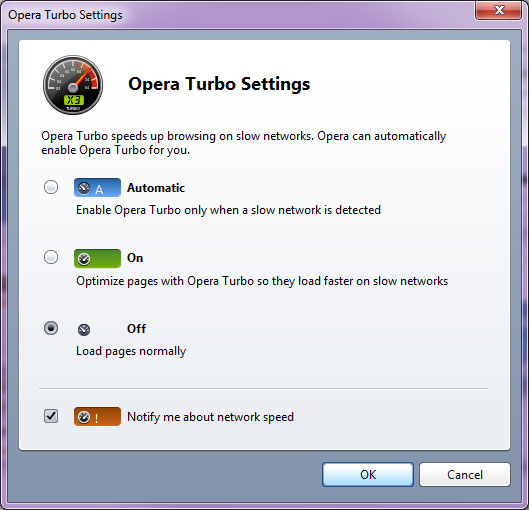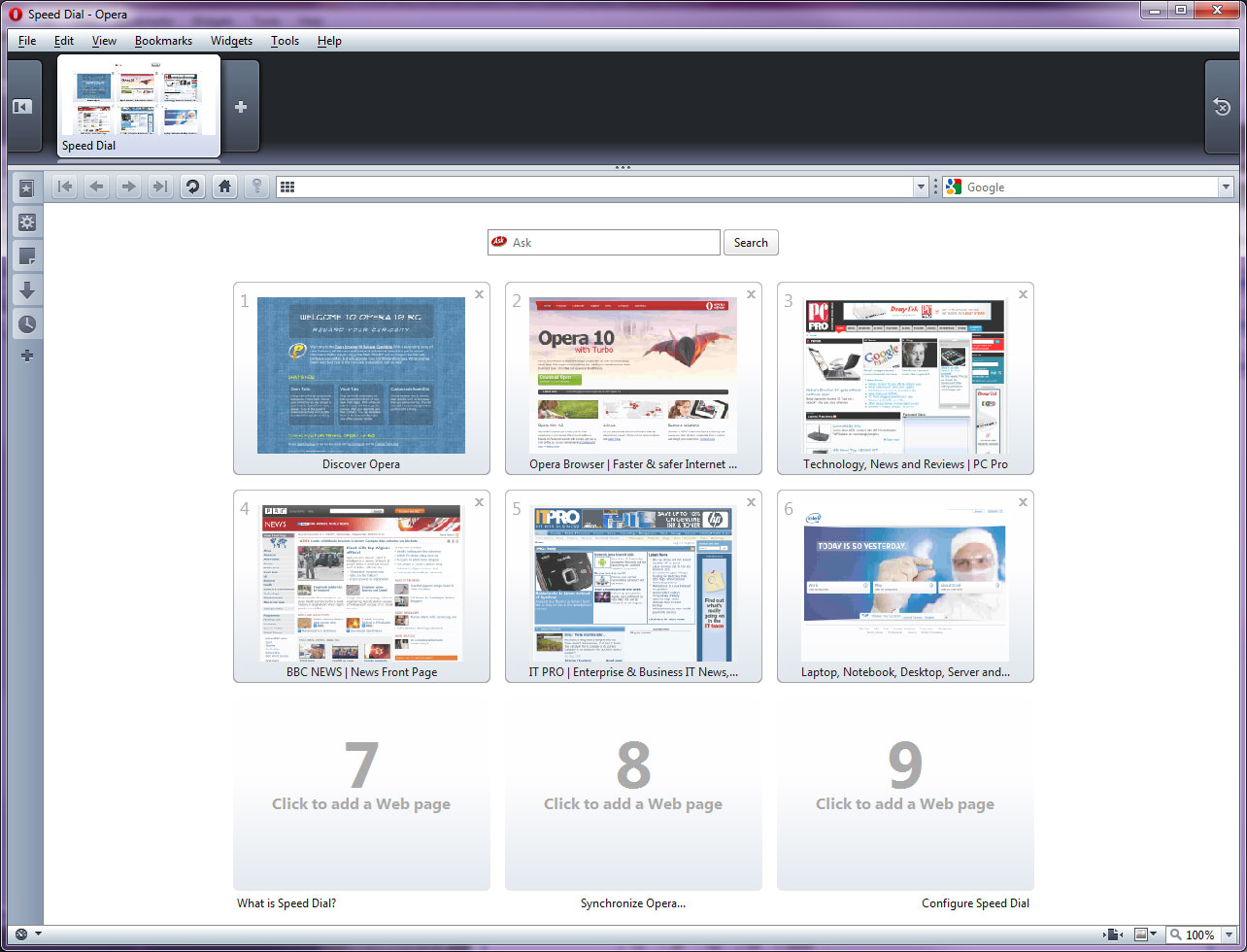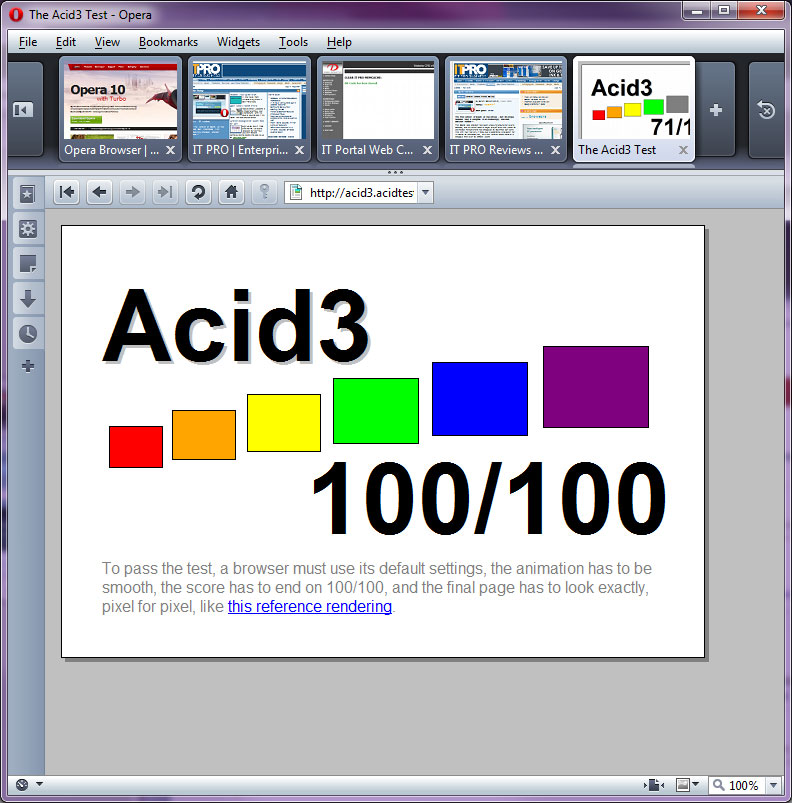Opera 10 review
The final version of Opera 10 has arrived. Can its unique features help it compete in an increasingly crowded browser market?

Opera brings itself up to date with the rest of the pack with a solid browser release offering a good mix of unique features and reasonable performance. However, its main appeal is likely to be to advanced users who have the desire for more technical detail and access to that left-of-field feature set. For everyone else, the more mainstream browsers will do fine.

The Opera web browser has been knocking around for over a decade, but it's never been a major player: over the years its estimated market share has struggled to top three per cent. And with now not only Firefox but also Chrome and Safari for Windows to compete with, this new version faces more of a struggle than ever to attract users.
But then Opera 10, which as with all browsers is downloadable for free, does offer some notable features that do distinguish it from its rivals. The headline addition is "Opera Turbo", which dynamically replaces online graphics with low-resolution versions to speed up browsing on slow connections, such as shared Wi-Fi networks. It can be enabled manually, or set to automatically kick in when Opera detects a slow link. For more information, check out our Need to Know: Opera Turbo" feature.

A second unique trick is the ability to expand the tab bar to show not just titles but thumbnail previews of open pages much like the taskbar previews in Windows 7. The "Speed Dial" navigation grid that appears in each new tab has been updated too: in previous versions of Opera it offered nine quick-access links, but in Opera 10 as in Safari you can customise the grid to show between four and 25 pages.

Opera 10 is also marketed as being "ready for the next generation of web applications", though it's still not the fastest browser: on our test system it took 2.9 sec to complete the SunSpider JavaScript benchmark, while Firefox 3.5.2 took 1.0 sec and Safari 4.0.3 blazed through in just 0.7 sec. Still, Opera is well ahead of Internet Explorer 8, which took 4.3 seconds.

And the browser does feature support for downloadable Web Fonts, as well as an impressive 100 per cent score on the challenging Acid3 CSS standards test. So you can be confident of seeing online content exactly as it was intended to be viewed.
Sign up today and you will receive a free copy of our Future Focus 2025 report - the leading guidance on AI, cybersecurity and other IT challenges as per 700+ senior executives
Darien began his IT career in the 1990s as a systems engineer, later becoming an IT project manager. His formative experiences included upgrading a major multinational from token-ring networking to Ethernet, and migrating a travelling sales force from Windows 3.1 to Windows 95.
He subsequently spent some years acting as a one-man IT department for a small publishing company, before moving into journalism himself. He is now a regular contributor to IT Pro, specialising in networking and security, and serves as associate editor of PC Pro magazine with particular responsibility for business reviews and features.
You can email Darien at darien@pcpro.co.uk, or follow him on Twitter at @dariengs.
-
 Hackers are using LLMs to generate malicious JavaScript in real time – and they’re going after web browsers
Hackers are using LLMs to generate malicious JavaScript in real time – and they’re going after web browsersNews Defenders advised to use runtime behavioral analysis to detect and block malicious activity at the point of execution, directly within the browser
By Emma Woollacott Published
-
 AI coding is taking off in the US – but developers in another country are “catching up fast”
AI coding is taking off in the US – but developers in another country are “catching up fast”News Developers in the United States are leading the world in AI coding practices, at least for now
By Nicole Kobie Published
-
 Veeam ramps up growth plans with trio of leadership hires
Veeam ramps up growth plans with trio of leadership hiresNews The data resilience vendor has reshaped its senior leadership team to deepen partner engagement and streamline customer success in the AI era
By Daniel Todd Published
